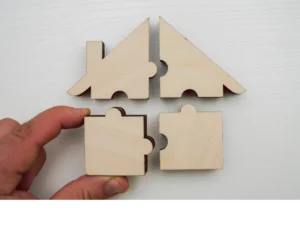IRS Tells Landlords How to Organize Tax Records
 You may not be thinking about your tax return right now, but summer is a great time to start planning for next year.
You may not be thinking about your tax return right now, but summer is a great time to start planning for next year.
Organized records not only make preparing your return easier, but may also remind you of relevant transactions, help you prepare a response if you receive an IRS notice, or substantiate items on your return if you are selected for an audit.
Here are a few things the IRS wants you to know about recordkeeping:
1. In most cases, the IRS does not require you to keep records in any special manner. Generally, you should keep any and all documents that may have an impact on your federal tax return. Its a good idea to have a designated place for tax documents and receipts.
2. Individual taxpayers should usually keep the following records, supporting items on their tax returns for at least three years:
Bills
Credit card and other receipts
Invoices
Mileage logs
Canceled, imaged or substitute checks or any other proof of payment
Any other records to support deductions or credits you claim on your return
You should normally keep records relating to property until at least three years after you sell or otherwise dispose of the property. Examples include:
A home purchase or improvement
Stocks and other investments
Individual Retirement Arrangement transactions
Rental property records
3. If you are a small business owner, you must keep all your employment tax records for at least four years after the tax becomes due or is paid, whichever is later. Examples of important documents business owners should keep include:
Gross receipts: Cash register tapes, bank deposit slips, receipt books, invoices, credit card charge slips and Forms 1099-MISC
Proof of purchases: Canceled checks, cash register tape receipts, credit card sales slips and invoices
Expense documents: Canceled checks, cash register tapes, account statements, credit card sales slips, invoices and petty cash slips for small cash payments
Documents to verify your assets: Purchase and sales invoices, real estate closing statements and canceled checks
For more information about recordkeeping, check out IRS Publication 552, Recordkeeping for Individuals, Publication 583, Starting a Business and Keeping Records, and Publication 463, Travel, Entertainment, Gift, and Car Expenses. These publications are available at www.IRS.gov or by calling 800-TAX-FORM (800-829-3676).
Check out our Landlord Forms page.
American Apartment Owners Association offers discounts on products and services for landlords related to your rental housing investment, including rental forms, tenant debt collection, tenant background checks, insurance and financing. Find out more at www.joinaaoa.org.













 Accessibility
Accessibility